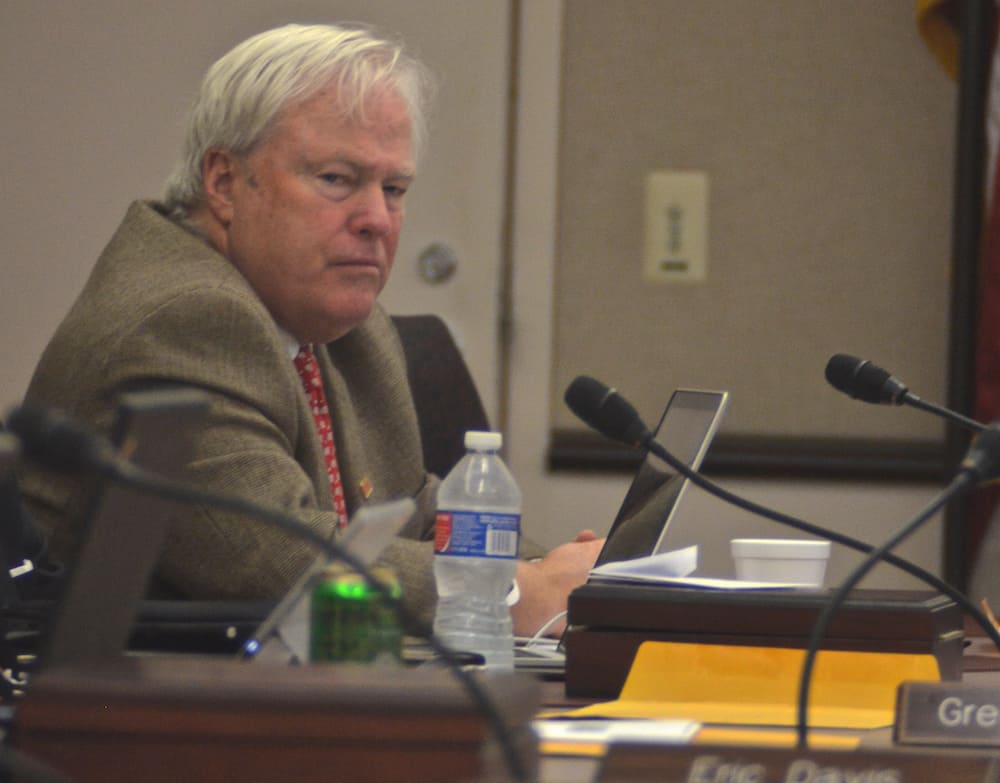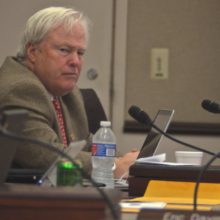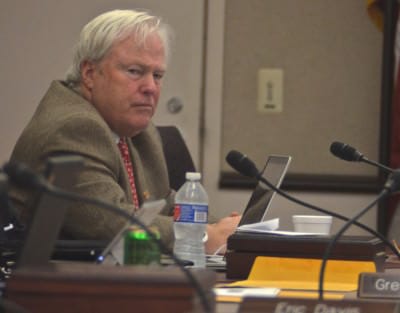

After 12 years, it’s time for fresh blood: fresh thinking, fresh questioning, fresh “rocking of the boat” from my seat. I consider it a privilege to have worked alongside each of you, and those who came before some of you, as we all remain committed to serving the best interests of children in our great state. I thank you all for your public service, acknowledging that a strong K-12 system is critical to sustaining North Carolina as a great place to live and raise a family and fundamental to a vibrant economy when considering workforce development. A strong public education system is at the heart of our democracy as a nation. As I depart the stage, I would like to share a few comments:
- School leadership: You know my passion for Regional Leadership Academies. I won’t bore you or the audience by reiterating the necessity for strong leaders in our schools. The research bears it out: next to quality instructional leadership in the classroom (i.e., good teaching!), solid schoolhouse leadership from our principals runs a close 2nd in proven effectiveness surrounding student achievement. If it’s not RLAs to help fill the aspiring leader ranks, keep working for creative pathways by which to identify and develop new leaders, pushing the boundaries of traditional licensure. I’m convinced that the self-selection ranks, those who opt to garner MSA (Master in School Administration, should not serve as the sole pipeline for achieving desired leadership bench-strength in districts across our state. I am also excited about the prospect for developing leaders outside traditional administration: namely, teacher leaders/master teachers–a practice we have seen for years on the global front, and now, more recently, in “opportunity culture” application in Charlotte and in “career pathways” being advocated through the governor’s office. Retaining proven leaders in the classroom, where they can leverage their talents in mentoring younger, less experienced teachers, makes sense. And such proves an economically viable approach when gaining efficiencies through larger classes or potentially limiting turnover through retention of talent in the profession. My hope is that you will be able to expand this concept statewide over time. Preliminary returns from Charlotte’s Project Lift look promising. Leadership–whether at the teacher or principal level–is too important to leave to chance.
- Teacher preparation: I wish I had more time with you to devote to this cause, critical to our future in K-12. Without solid instructional leadership present in the classroom, we are dead in the water. I know you know that. I am convinced much improvement can be made on the pre-service side: preparation of our candidates in schools of ed, both in the University system as well as our state’s private colleges. At present, we need to be concerned about both quantity and quality of enrollees in those schools. Why are we not attracting more of the best and brightest to the field? And, if the current approach is not working, what can we do to reverse trends? Are we treating this profession the way we should? If we are not careful, the pipeline to fill approaching needs in the classroom could lead to serious shortages. And you well know this is not just about numbers, but about quality if we are to move the state forward the way I know each of you desires. We owe our children no less. I applaud recent work, initiated by former UNC system president Erskine Bowles and continued by Tom Ross (and hopefully by university system presidents to follow), to track the performance of graduates, by university campus, placed in the field. Such research has not been limited to those graduates emanating solely from our schools of ed, but alternative pathways, like Teach for America, whose positive results should not be overlooked. And I applaud the General Assembly for its investment to expand on TFA’s proven success. Beyond, I would encourage each of you to continue the quest to explore best practices in teacher prep on an international front. Finland is one such example. There is much to be learned from their success in attracting the best and brightest into the profession where preparation is extensive, pay is attractive, and professional respect is held high. Resultant retention is strong and student achievement is incredibly impressive. What are they doing right that we could be doing better? Until we solve the answer to this question, we are not doing our job on behalf of kids. I remain hopeful that some of our schools will initiate reform, and would encourage each of you to incent them to pilot new approaches. Our #1 aim should be to insure a quality teacher in every classroom.
- Rigor should rule: Those of us around this table have a fiduciary responsibility to keep standards high. That means enduring rough transitions on test scores, as we ratchet up rigor to prepare our kids to be graduates ably armed for the future. We need to ask a lot of our kids if we are to be honest with them in preparing them for this global landscape, increasingly a competitive marketplace.
- Testing: Please, please maintain an accountability system that measures our core mission around kids learning. I agree we need to continue to strive to find the right mix of diagnostic-formative-summative testing, but anything less than an objective product that tells us how kids are doing in all 115 districts (and our charters) leads very potentially to an uneven landscape. We need to insure an equitable access for a sound, basic education for ALL our kids across the state. We know our kids learn through effective teaching. We need tools by which to measure progress in student achievement, and constant coaching on the instructional leadership front, utilizing data, to help our teachers get better in their jobs.
- Choice & charters: We have all learned a lot from our foray into choice. And charters continue to offer us a way by which to push innovation. That is good. My warning would be twofold: (1) provide oversight in the early years of these “new businesses.” Many will require help to get through the start-up phase. Everyone is well-served by this help, most especially our kids who deserve a stable learning environment. We all win when charters succeed. (2) Let’s work to insure that any flight to charters does not leave the ultimate residual landscape of our traditional schools reflecting only minorities, those with special needs, or the economically disadvantaged. We are all well served by diversity in our schools–all of them. As we work to provide choice, let’s work as well to make sure our traditional public schools represent a viable choice in themselves.
- DPI & the staff that serve you: Each of us has had our disagreements with staff over one issue or another. But, I can unequivocally say from 12 years of experience in this seat that I respect these people for the professionals that they are. Most work tirelessly for kids and for the districts that serve our state’s communities, whether by developing standards to guide curriculum and instruction, or probing into those black box depths of testing and accountability (psychometrics to EVAAS), or helping to guide us through the sometimes precarious but always seemingly ever-changing rules of the road toward insuring quality charters, or assisting us as we figure out the best and most efficient way to reach ALL of our kids in capitalizing on the digital age (which holds great promise for those of us in the education business), or working to balance needed rigor against positive results to bring our children to the graduation stage to receive a diploma that has meat on the bone, or managing against limited resources to find the money to insure we are investing wisely in our kids while looking after the taxpayer in a responsible fashion. But, make no mistake: our charge is to look after the educational well-being of the children of NC. We must graduate them prepared for the demands of what we all now know is a true global landscape, knowing that they need to be critical thinkers, armed with solid content knowledge-and have demonstrated the ability to work with peers in solving problems. Whether they go in to the military, or the workforce, or on to higher education, it is our job to equip them to be successful. And the only way to get there is through solid teamwork. Staff at DPI are our core team members. We all need to work together effectively to properly serve the field and ultimately our children.
- Be our state’s chief advocates for children: Over the last six years, we have seen massive cuts to K-12. Today, we have 15,000 fewer professionals across the state serving our kids. A primary culprit has been the repercussions of a deep recession, which brought us shrinking revenues in the face of the requirement for a balanced budget, but, as we have recovered, we have seen the give-away of a half billion $ plus to taxpayers in the form of a tax cut. Education has suffered. The profession has suffered. And the predicament before you is that, eventually, our kids will have suffered. We need to ask ourselves, and then advocate before others, do we have our priorities properly balanced? We have plummeted from 26th in average teacher pay in 2006 to 46th In per-pupil spending, we are worse, holding claim to 48th place. Last year’s raises were a start, but we have a long way to go to reach the national average, which I hope will be this board’s strategic objective. There is truth to the adage, “you get what you pay for.” While I hold great admiration for those who have clung to the profession during these times of personal fiscal stress, I worry deeply about our ability to attract and retain the best and brightest to the profession. Latest tally of entrants to our schools of ed should serve as a frightening reminder. That, coupled with our growing inability to attract from out of state, potentially leaves a significant hole in meeting demand. In the final analysis, we know that the answer to virtually all the challenges before us is great teaching in the classroom. We have got to work–ALL of us–to restore trust and build respect for this profession. A decent living wage should be near the top of the agenda.
- Funded quality pre–school slots for those in need: Real equity is about having ALL our children prepared for school when they enter kindergarten. Until such becomes a reality, the achievement gap will prove virtually impossible to close. At the least, the business of playing catch-up becomes incredibly expensive. It’s pay me now, or pay me later–and many of the consequences with the latter are unacceptable. Maintaining rigor, graduating kids prepared, insuring equity along the way: we can’t afford not to invest in our kids early.
I know most of you share these feelings. We have our differences, but there is much more that unites us in wanting the best for our kids. I would urge you to strive for continuous improvement, always working for better results for our kids–as a team. As we have discussed, staff is part of that team. Teachers are part of that team. Parents are part of that team. District administrators–principals and superintendents–are part of that team. The higher ed system is part of that team. Our various constituents across the state are part of that team. And hopefully our work can be in tandem with our friends in the Governor’s office & the General Assembly. We stand to get our most promising work while working together, as one team, forged and focused on doing best by our state’s kids. Think of the potential if we could all come together committed to lead the nation on this front.
And, as I think of the possibilities, I have to add, somewhat ironically–as a retired businessman, this investment we call public education has the potential to translate to huge economic gains by producing the nation’s best-prepared workforce.
I respect you, each of you and your commitment to do right by kids. I sincerely believe that you are at this table for that purpose. While I know you may doubt me as I say this, I don’t care if you are Democrats or Republicans. In fact, some of you have become near and dear to my heart that are of a different political persuasion than my own. It has been a good lesson to me to listen a little better and to clear my mind of clutter that comes with bias. I would also say that I have been taught a valuable lesson from our advisors who sit around this table with us. When this requirement was initially introduced to us, I will admit to some skepticism. Now, several years later, I am a believer–a big believer. Our teacher advisors, our principal advisors, our superintendent advisors, our local board advisors, our student advisors–each brings demonstrated, proven leadership qualities coupled with vast experience for many, proving to be of incalculable value to us as we craft policy. Shame on me and kudos to them. I would only encourage each of them, as they fill their spots at this table, to speak up. They have the capacity to influence our business in a very productive way.
Enough. My best to each of you. As I still tell my own kids, “stand up for what you believe in”.
John A. Tate, III
March 5, 2015


